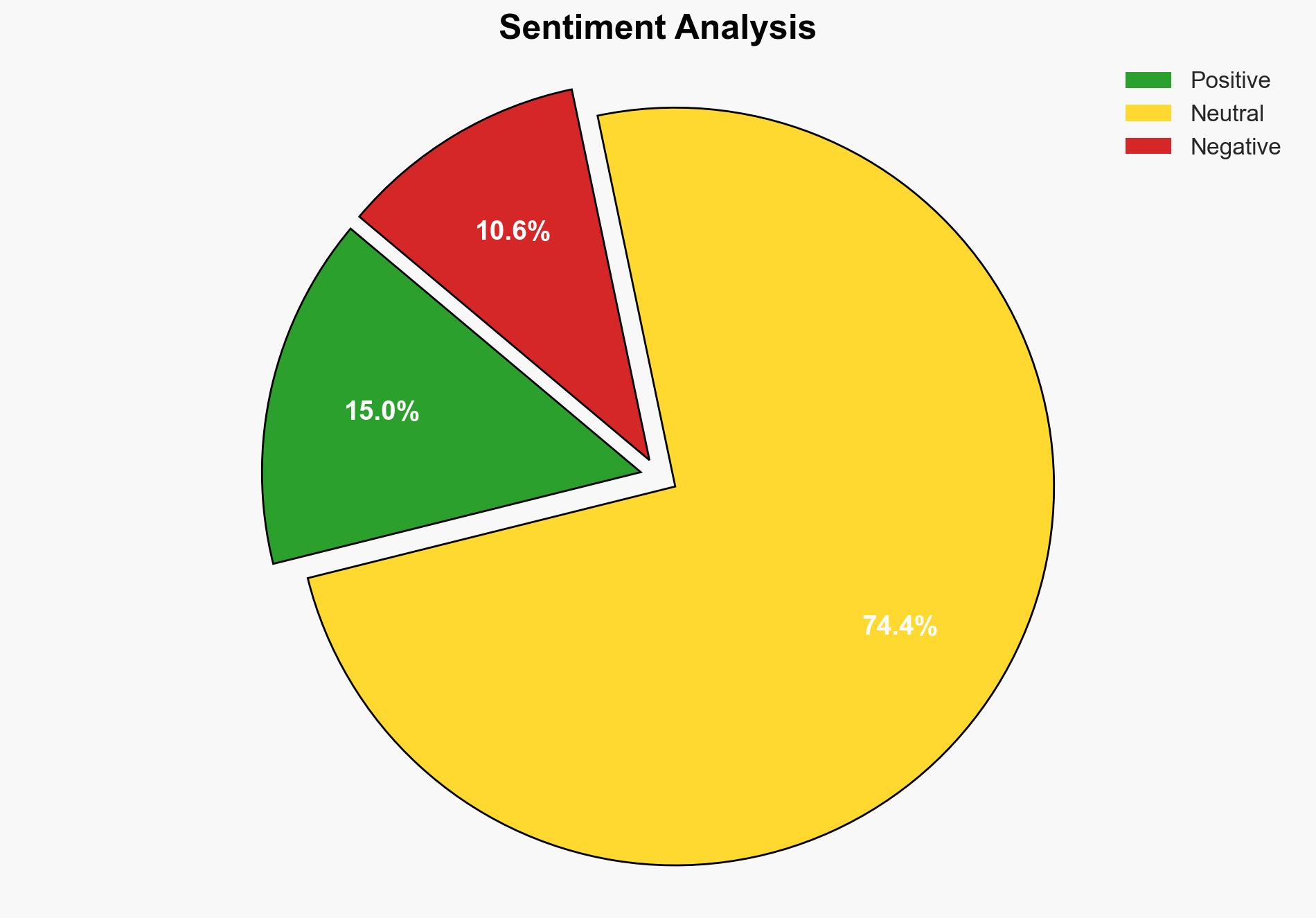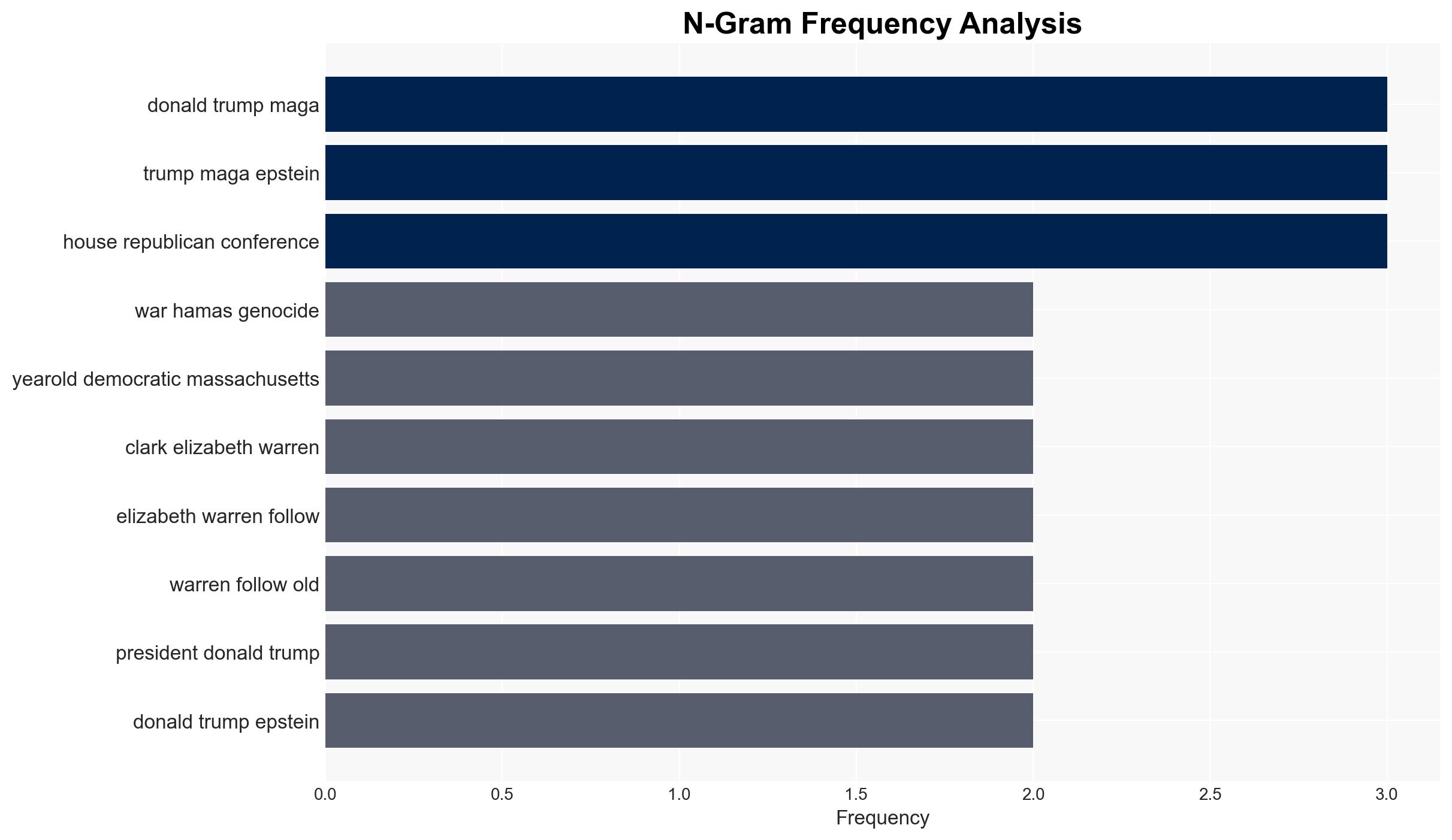Battenfeld Katherine Clark and Democrats obsession with Epstein the wrong message – Boston Herald
Published on: 2025-11-18
AI-powered OSINT brief from verified open sources. Automated NLP signal extraction with human verification. See our Methodology and Why WorldWideWatchers.
Intelligence Report:
1. BLUF (Bottom Line Up Front)
The Democratic Party’s focus on the Epstein case and related controversies may be a strategic misstep, potentially alienating average voters more concerned with economic issues. The most supported hypothesis is that this focus could weaken the party’s appeal in upcoming elections, providing an opening for Republican narratives. Confidence Level: Moderate.
2. Competing Hypotheses
Hypothesis 1: The Democratic Party’s focus on the Epstein case is a strategic error that distracts from pressing economic issues, potentially alienating voters.
Hypothesis 2: The focus on the Epstein case is a calculated strategy to highlight perceived Republican corruption and energize the Democratic base.
Hypothesis 1 is more likely due to the broader voter concern with economic issues over scandals, as indicated in the source text. The emphasis on Epstein may not resonate with voters facing economic challenges.
3. Key Assumptions and Red Flags
Assumptions: Voter priorities are primarily economic; the Democratic Party’s strategy is coherent and unified.
Red Flags: Potential bias in media portrayal; reliance on past strategies that may not align with current voter concerns.
Deception Indicators: Possible exaggeration of the Epstein case’s impact on voter sentiment.
4. Implications and Strategic Risks
The Democratic Party’s current strategy could lead to decreased voter turnout among economically-focused constituents, increasing the risk of losing seats in Congress. This could also embolden Republican narratives, framing Democrats as out of touch with voter priorities. Escalation could occur if economic conditions worsen, further shifting voter focus away from scandals.
5. Recommendations and Outlook
- Actionable Steps: Shift focus to economic policies and tangible benefits for voters. Develop a clear, unified message that addresses voter concerns.
- Best Scenario: Democrats realign their messaging to prioritize economic issues, maintaining voter support and potentially gaining seats.
- Worst Scenario: Continued focus on scandals leads to voter alienation and significant losses in upcoming elections.
- Most-likely Scenario: Mixed results with some voter segments energized by the scandal focus, but overall diminished appeal due to economic oversight.
6. Key Individuals and Entities
Katherine Clark, Elizabeth Warren, Donald Trump, Larry Summers, Lisa McClain.
7. Thematic Tags
Counter-Terrorism, Political Strategy, Voter Behavior, Economic Policy
Structured Analytic Techniques Applied
- ACH 2.0: Reconstruct likely threat actor intentions via hypothesis testing and structured refutation.
- Indicators Development: Track radicalization signals and propaganda patterns to anticipate operational planning.
- Narrative Pattern Analysis: Analyze spread/adaptation of ideological narratives for recruitment/incitement signals.
- Network Influence Mapping: Map influence relationships to assess actor impact.
Explore more:
Counter-Terrorism Briefs ·
Daily Summary ·
Support us





